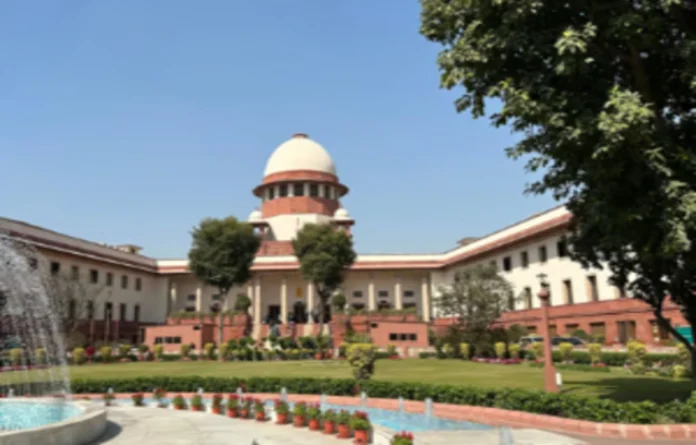The Supreme Court has agreed to hear in September, a petition filed by the State of Bihar challenging the Patna High Court order, which set aside the Bihar Amendment Laws increasing reservation for Backward Classes, Scheduled Tribes (STs), Scheduled Castes (SC) and Extremely Backward Classes from 50 per cent to 65 per cent.
The Bench of Chief Justice of India DY Chandrachud, Justice JB Pardiwala and Justice Manoj Misra on Monday agreed to grant leave to appeal in the special leave petition filed by the State of Bihar.
Appearing for the State of Bihar, Senior Advocate Shyam Divan sought a stay on the High Court judgment on the lines of an interim order passed by the Apex Court in a similar law relating to Chhattisgarh. He further pressed for the issuance of a notice on the interlocutory applications.
However, the Bench refused to grant any interim relief at the present stage and listed the matter for further hearing in September.
Divan argued that a deeper consideration of the interim prayer was required. He said that if a notice on the interlocutory application was issued, the prayer would not be foreclosed and the Court could consider the issue at a later stage also. He added that the issue might need consideration by a larger bench as well.
Solicitor General of India Tushar Mehta submitted that interview processes for employment were underway as per the law.
The Bench of Chief Justice K. Vinod Chandran and Justice Harish Kumar of the Patna High Court had struck down a PIL on June 20, filed by the Bihar Reservation (Amendment) {for Scheduled Castes, Scheduled Tribes, and Other Back Classes} Act, 2023, and the Bihar Reservation (Amendment) Act, 2023 {in admission in educational institutions}.
The Bihar government passed the amendments based on the data collected from the caste survey conducted in 2023. The quota for Extremely Backward Classes (EBC) was raised from the existing 18 percent to 25 percent; for Backward Classes (BC) from 12 percent to 18 percent; for Scheduled Castes (SC) from 16 percent to 20 percent. For Scheduled Tribes (ST), the quota was doubled from 1 percent to 2 percent.
The High Court set aside the amendments as ultra vires and being violative of equality under Articles 15(4) & 16 (4) of the Indian Constitution. Article 15(4) empowers the State to make any special provision for the advancement of SC, ST, or any socially & educationally backward classes of citizens. Article 16 (4) provides that the State can reserve posts for any backward classes, who are not adequately represented in the services of the State.
The High Court struck down the amendments as unconstitutional on the grounds that there was a ceiling limit of 50 percent for reservations. It said the reservation was based on a mere proportion to the population of backward classes (proportionate reservation), adding that the State/respondent did not conduct any analysis or in-depth study before enhancing reservation under the amendment acts.


